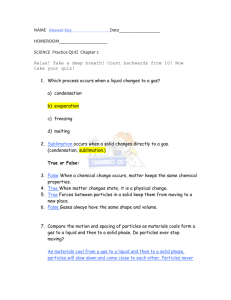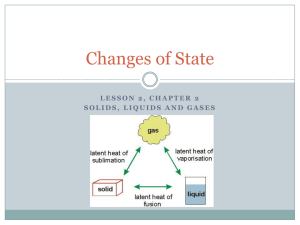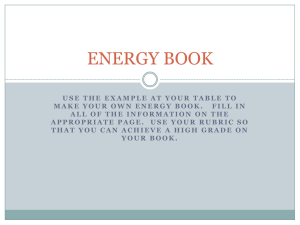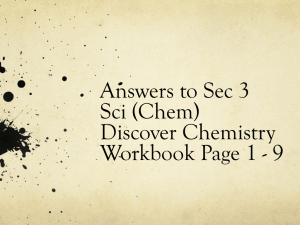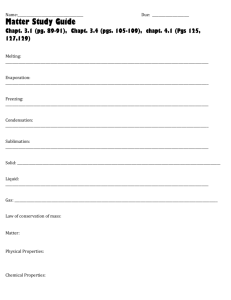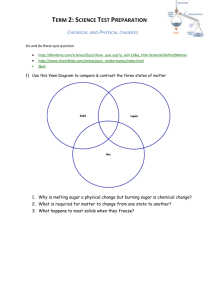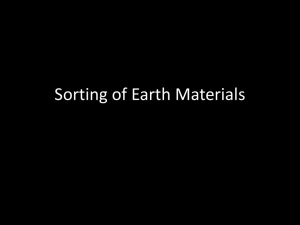States of Matter Powerpoint 4.1
advertisement
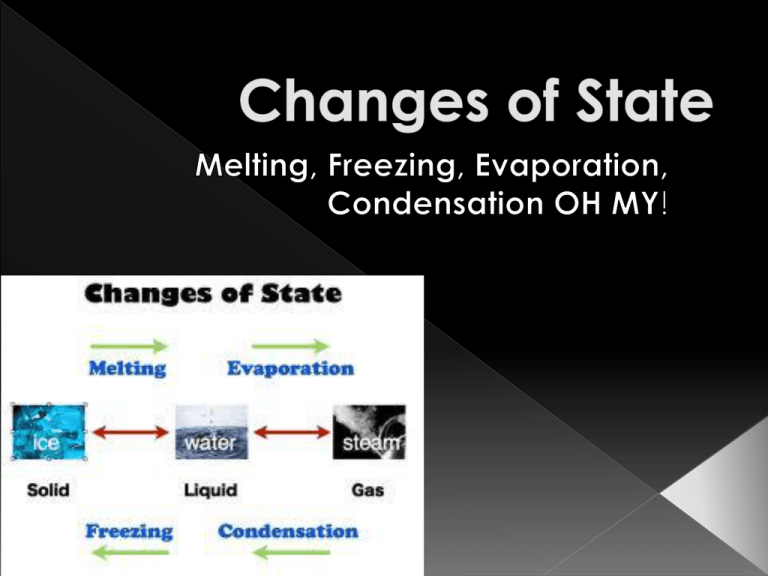
Melting Evaporation Freezing Condensation A change of state is changing a substance from one physical form to another. Physical change means the substance only changes it’s appearance; it’s still the same substance! A substance can change from one state to another by adding or removing ENERGY! One type of energy is HEAT…so we are adding heat or removing heat to change states The more energy (higher temperature) will make the particles move faster The more energy/heat will make the particles spread out more Melting: liquid. Energy The change of a solid to a (HEAT) must be added to the substance to make it melt. As the substance is melting, the particles are moving faster because energy/heat was added. The particles are also spreading out more because they are going from a solid (packed together) into a liquid (loosely packed) Evaporation: The change of a liquid to gas. Energy/heat must be added to make it evaporate The particles are moving even faster as they go from a liquid to a gas The particles are spreading out farther and farther. REVERSE! If you remove energy/heat (lower temperature) the particles move slower Removing energy makes the particles get closer together Freezing: solid. The change of a liquid to a Energy/heat must be removed to make the substance freeze. As energy/heat is removed and the substance is freezing, the particles are starting to move slower. As energy/heat is removed to freeze, the particles are getting closer. Condensation: The change of a gas to a liquid. Energy/heat must be removed to change a gas to a liquid. Example: All the steam from a hot shower creates condensation (water droplets) on the mirror. As energy/heat is removed in condensation, particles are moving slower. As energy/heat is removed in condensation, the particles get closer. Sublimation: The change of a solid directly to a gas. Energy must be added. › Think: As dry ice is exposed to a warmer temperature (more energy) it will begin to look like its steaming. Particles are moving faster as the solid turns into a gas Example: Dry ice
